BY LINCOLN ANDERSON | They told you so!
Bowing to political pressure and in the face of numerous lawsuits, Governor Hochul on Wednesday declared that the Manhattan congestion pricing plan is on an “indefinite pause.”
“After careful consideration I have come to the difficult decision that implementing the planned congestion pricing system risks too many unintended consequences,” Hochul said. “I have directed the M.T.A. to indefinitely pause the program.”
She cited high inflation, cost-of-living and housing costs, plus the city’s ongoing recovery from having been “the epicenter” of the pandemic. The post-COVID work-from-home model has left Manhattan with an office vacancy rate of 20 percent and less foot traffic, which is impacting restaurants, delis and other businesses, she said.
“Hard-working New Yorkers are getting hammered on costs,” she said. “A $15 charge puts the squeeze on people who make this city go. I cannot add another burden to working and middle-class New Yorkers or create another obstacle to our ongoing recovery. … The reduction in foot traffic has had an enormous ripple effect.”
Hochul warned a congestion tax could make people tell employers they can only work from home, that some would forgo trips into Manhattan for dinner, theater or a night out, while others might just choose to move away.
“In this moment of financial stress,” she said, “my focus must be on putting money back in people’s pockets and that’s why I will stand up for them and say no to congestion pricing at this time.”
Hochul said she still supports “the goals of congestion pricing,” but would work with city, state and federal officials to find other ways to achieve them.
“My commitment to a greener, more sustainable future is unwavering,” she declared.
The Metropolitan Transportation’s traffic-tolling plan was set to start later this month on June 30. It would have walloped car drivers with a $15 once-a-day fee for driving into Manhattan south of 60th Street ($3.75 during off-peak hours) — and trucks with repeated fees of $24 to $36 for each time they entered the zone.
However, the scheme faced eight lawsuits, with plaintiffs ranging from New Jersey, to the teachers union to Chinatown merchants and Lower East Side residents, all of whom said the plan’s financial impact would be unfair and onerous. Among the top arguments was that a comprehensive environmental impact statement, or E.I.S., for the sweeping, first-in-the-nation plan was shockingly never done.
‘The whole thing is a mess’
Retired judge and former Councilmember Kathryn Freed, who lives on the Lower East Side and is a plaintiff on a class-action lawsuit against congestion pricing, has become a sort of poster person for the opposition. Yet, she described her reaction to the plan’s shelving as “mixed.”
“I’m not one of the people who’s crazy pro-car or whatever,” she said. “The whole thing is a mess. I don’t know what Hochul was waiting for — it was massively unpopular.”
Indeed, according to a recent Siena College survey, 63 percent of New Yorkers statewide and 64 percent of Big Apple residents oppose the Manhattan congestion pricing plan, with opposition in the suburbs even higher at 72 percent. Fourteen percent said they would not come to Manhattan as often due to the toll.
At the urging of then-Governor Cuomo, the state Legislature passed congestion pricing into law five years ago, with the target of raising a total of $15 billion — at a clip of $1 billion per year — for the constantly cash-poor transit agency.
Pre-COVID plan out of step
“The plan was done before COVID,” Freed noted. “This is going to hit the city’s bottom line. The bottom line since COVID is that fewer workers are going to the office; they’re spending more time at home. New office buildings are not getting tenants. It’s exacerbating the trend of employees not coming to the office,” she said of congestion pricing. “And there’s a trend to convert a lot of the commercial space to residential.”
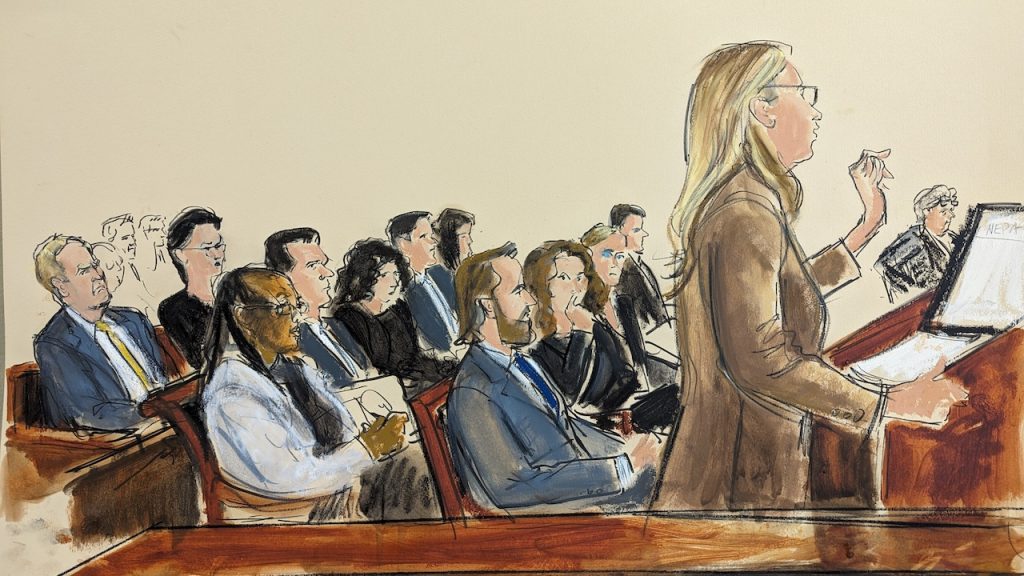
Plaintiffs also argued congestion pricing would jack up costs for goods and services that merchants, in turn, would pass along to residents below 60th Street — the so-called Manhattan Central Business District.
“We were going to end up with the M.T.A. being paid money that was going to reduce our tax base and have the city and state raising money to fund it,” Freed said. “I mean, what’s the matter with these people?”
Was hurting Dem candidates
According to news reports, Hochul finally was swayed by Congressmember Hakeem Jeffries, the House minority leader, who warned the congestion pricing issue was badly hurting Democratic candidates currently running for election. In New York State congressional elections two years ago, G.O.P. candidates shockingly flipped four Democrat-held seats, shifting the balance of power in Washington.
“It was clearly a political decision,” Freed said of Hochul’s freezing the traffic plan. “How many times are we going to cost Democrats the Congress?”
The former Lower Manhattan councilmember continued that the congestion pricing fiasco shows New York just cannot get “comprehensive planning” right. The environmental and economic impact on neighborhoods and residents in the zone, she said, was not adequately studied or considered, echoing a main claim of the lawsuit she is a party to. Her area of the Lower East Side would get more traffic and pollution under congestion pricing since the F.D.R. Drive would not be tolled.
‘There is no planning’
“There is no planning,” Freed fumed. “There’s just muddling along each time. In London, very few people live in the Central Business District. Our Central Business District includes some of the oldest neighborhoods in the country — the Village and Lower East Side — and it has a lot of NYCHA [public housing]. This was going to kill NYCHA. This whole area is like a NORC, a Naturally Occurring Retirement Community. Most of the people are not healthy, or it’s like when you’re looking at, ‘Do I want to pay the rent or eat cat food?’
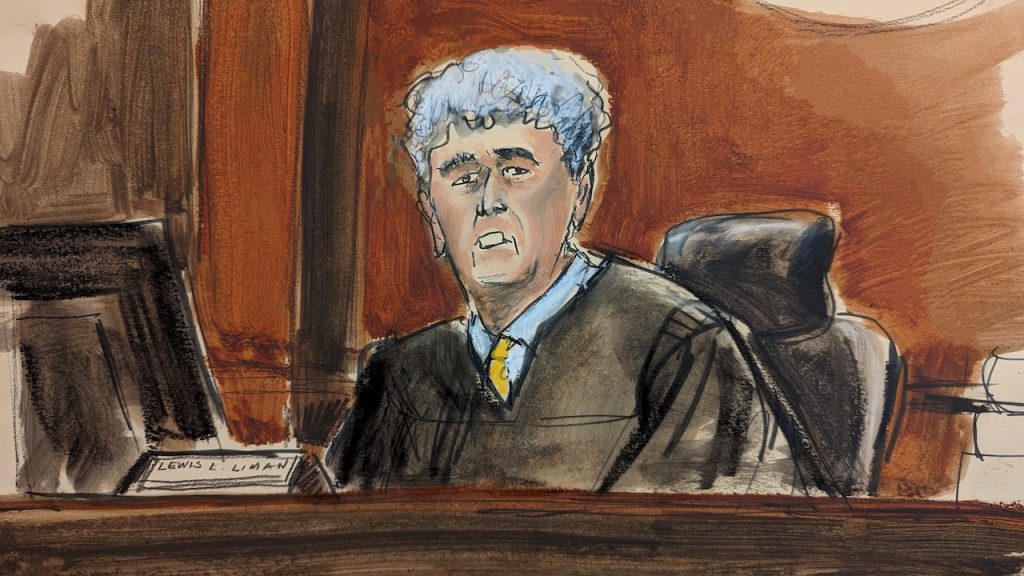
“When I was in the Council, we didn’t throw people under the bus — no pun intended,” she said. “What was it the Greeks said? ‘A society should be judged by the way it treats its most vulnerable.’ Well, by that standard, we’re screwed.
‘They’ve wasted — what — half a million dollars on infrastructure?” she added, referring to the tolling gantries that now ring the planned congestion zone.
Freed charged that Manhattan traffic has been worsened by changes in street usage by City Hall and the Department of Transportation.
“How many lanes of traffic in the city have been given to biking, bus lanes and [dining] sheds and now Open Streets?” she fumed. Others point the finger at the tens of thousands of Uber, Lyft and Revel app-hail cars clogging up the borough’s streets.
‘Political cop-out’
Attorney Jack Lester is representing the class-action lawsuit on which Freed is a plaintiff, along with former City Council candidate Susan Lee’s group New Yorkers Against Congestion Pricing Tax, nine city councilmembers and Assemblymember David Weprin, plus numerous individual merchant and residents from around the city.
Lester called Hochul’s statement a “cop-out” since it does not rule out the possibility of congestion pricing being resurrected after this year’s elections.
“It sounds like a political cop-out,” he said. “I think people are afraid to show leadership, to take a stand. Either say it’s dead or not — don’t wallow in middle ground. I think she’s trying to see which way the wind is blowing. If you want to take a position, say the economic impact would be devastating, which is what we said in the lawsuit. But instead of putting the kibosh, she’s saying it’s delayed. They’re looking at congressional races. But after the congressional races are over, we’ll still have the problem [of whether congestion pricing will be approved].”
The attorney said core business areas, like Chinatown, Little Italy and the Theater District, would be hammered by the traffic toll, as well as working-class people living inside the district.
“This was economic warfare,” he declared.
Lester offered alternative ways the M.T.A. could raise revenue and decrease pollution other than indirectly “taxing small businesses” via congestion pricing.
“They can dip into the Highway Trust Fund,” he suggested. “They could improve mass transit before you force people into an overburdened system. Try carpooling.”
Lawsuits in limbo
Lester presented arguments at the most recent New York federal court hearing on the issue on May 17. He believes the judge would have rendered a decision before June 30. Now that the time pressure has been relieved, though, it’s unclear how the judges on the various suits will proceed, he said.
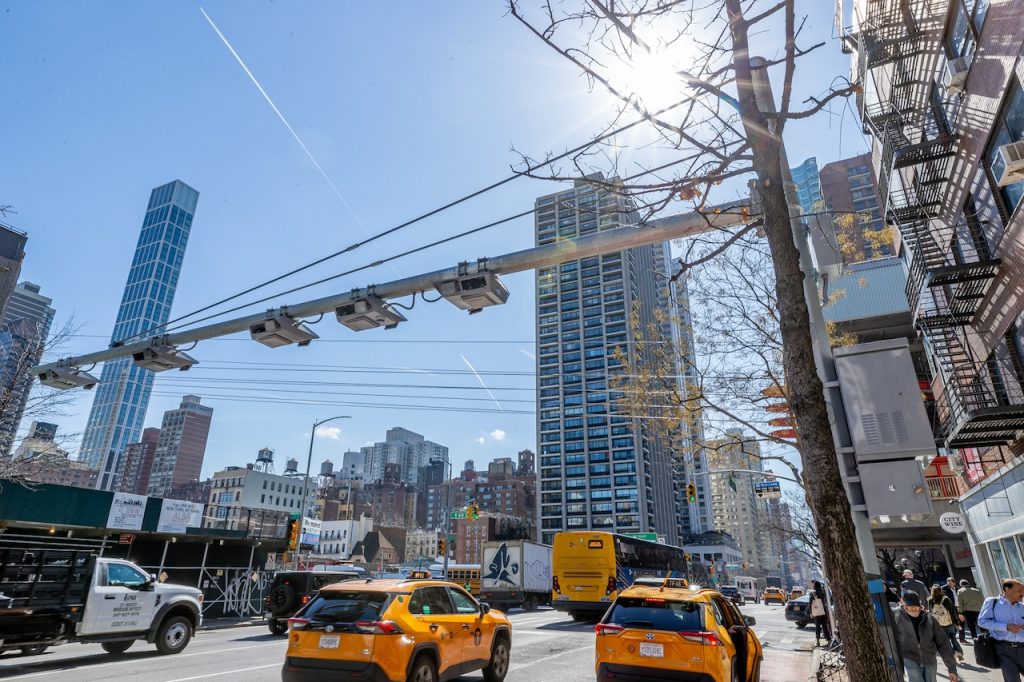
In court on May 17, Lester spoke about how the traffic plan’s impacts on small businesses within the zone had not been considered, even though, he said, it’s required under the New York State Administrative Procedure Act. Earlier that day, appearing before the same judge, a lawyer for the United Federation of Teachers argued that the M.T.A. had not done an E.I.S., had not looked at other possible revenue-raising alternatives and did not conduct proper public hearings, but rather, as Lester put it, “very truncated” public hearings.
However, Lester said the M.T.A. attorney countered, “All we did was set the tolling rates,” in defense of the agency skirting the public hearing requirement under the New York State Public Procedure Act.
“No study done,” Lester scoffed. “It defies common sense. This is a big tax increase for those making under $75,000.” For car drivers commuting into the zone, he said, “This is going to increase the average worker’s cost by $3,600 a year.”
Zone politicians double down
Despite the majority of public opinion being against the plan, local politicians aren’t throwing in the towel on congestion pricing. After Hochul’s announcement, the two congressmembers representing the Manhattan congestion zone again each threw their weight behind the scheme.
“I am concerned that after years of delays and setbacks, implementation of congestion pricing is once again being postponed,” Dan Goldman said.
“I am encouraged that Governor Hochul intends to identify an alternative revenue stream to ensure that the M.T.A.’s capital improvement plan can move forward in the near term.
“I look forward to working with Governor Hochul and the M.T.A. to ensure that this temporary pause is just that — temporary,” Goldman stressed. “Together, we can forge a path toward a greener, cleaner and safer New York.”
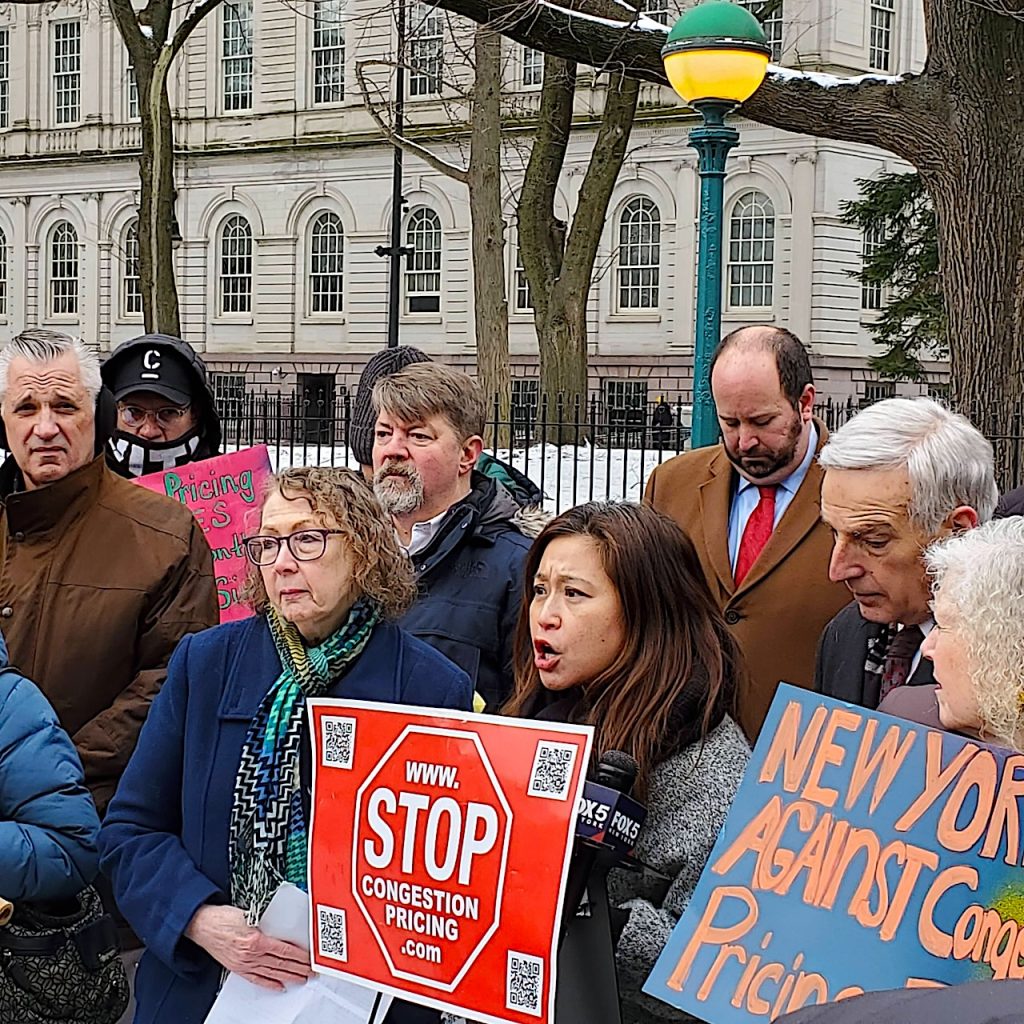
Jerry Nadler also tweeted his support of congestion pricing, saying, “We cannot allow a vocal minority of drivers who don’t qualify for exemptions or discounts to dictate our policy decisions. The M.T.A. is the lifeline of the New York City metropolitan area, and congestion pricing is the best solution to getting our transit system back on track.”
On the same page with them, Borough President Mark Levine, in a statement, lamented “paralyzing levels of traffic in Midtown and Downtown, slowing emergency response times, harming our climate fight. We have desperate funding needs in our subways… . How are we going to fix these things now?”
Indeed, most of the city’s progressive Democratic political establishment railed against the plan’s being shelved. Councilmember Erik Bottcher said his district — which includes the Lincoln and Holland tunnels and Midtown West, plus the smog-belching Port Authority bus terminal — would benefit immensely from the traffic tax.
“Out of 51 Council districts,” he posted on X, “Council District 3 ranks #1 in air pollution, #2 in traffic injuries and dead last in bus speeds. Yet, 84% of our district residents do not own cars, and 94% of our residents do not commute by car.”
Checked with Joe first
According to news reports, before making her announcement, Hochul traveled to Washington, D.C., to consult with President Biden about congestion pricing.
In May 2023, the Biden administration granted federal approval to the novel traffic plan. Meanwhile, last month, Republican frontrunner former President Trump posted on his Truth Social, “I can’t believe that New York City is instituting Congestion Pricing, where everyone has to pay a fortune for the ‘privilege’ of coming into the City, which is in desperate trouble without it.”
Trans Alt: ‘A slap in the face’
In a statement, Elizabeth Adams, a Transportation Alternatives spokesperson, demanded Hochul pass congestion pricing.
“Delaying congestion pricing is a slap in the face to the millions of New Yorkers who rely on public transportation every day just to appease the program’s loudest foes,” she said. “Transit riders are the majority of New Yorkers — and certainly the majority of New Yorkers of color, low-income New Yorkers, disabled New Yorkers, New Yorkers with children — and today Kathy Hochul sided with powerful special interests instead — just days before this program was slated to go into effect. The program must start on June 30.”
Hacks heave sigh of relief
Bhairavi Desai, executive director of the New York Taxi Workers Alliance, said cabbies have suffered enough already under an M.T.A. surcharge that kicked in five years ago.
“The governor’s reported plan to replace congestion pricing with a tax on corporations is a step in the right direction,” she said. “We need to address congestion in the Central Business District, but another surcharge on struggling yellow taxi drivers was never the right solution.
“We should be taxing the rich, not the poor to pay for the M.T.A.’s budget shortfalls. But, time and again, the M.T.A. has relied on the hard-earned dollars of cab drivers to fill their coffers, including by implementing the first M.T.A. tax on cab rides in 2019 at a time when we were witnessing a devastating wave of NYC’s yellow, green, livery and Uber drivers dying by suicide.
“The governor is reportedly concerned about the slow post-COVID recovery for CBD businesses. Proof of that slow recovery is reflected starkly in the 50 percent reduction in fares that yellow cab drivers are still experiencing. Taxi drivers need more relief, not more taxes. We’re calling on the governor to suspend the two existing M.T.A. taxes on cab drivers to give them a fighting chance to bounce back.”
‘Good news for vendors’
Robert Lederman, the president of Artists’ Response to Illegal State Tactics (A.R.T.I.S.T.), who advocates for the rights of street artists and vendors, hailed Hochul’s call for an “indefinite pause.”
“This is good news for all vendors,” he said, “both in terms of the cost to drive into New York City and because congestion pricing would prevent hundreds of thousands of New Yorkers from coming into Manhattan to shop, eat, etc.”
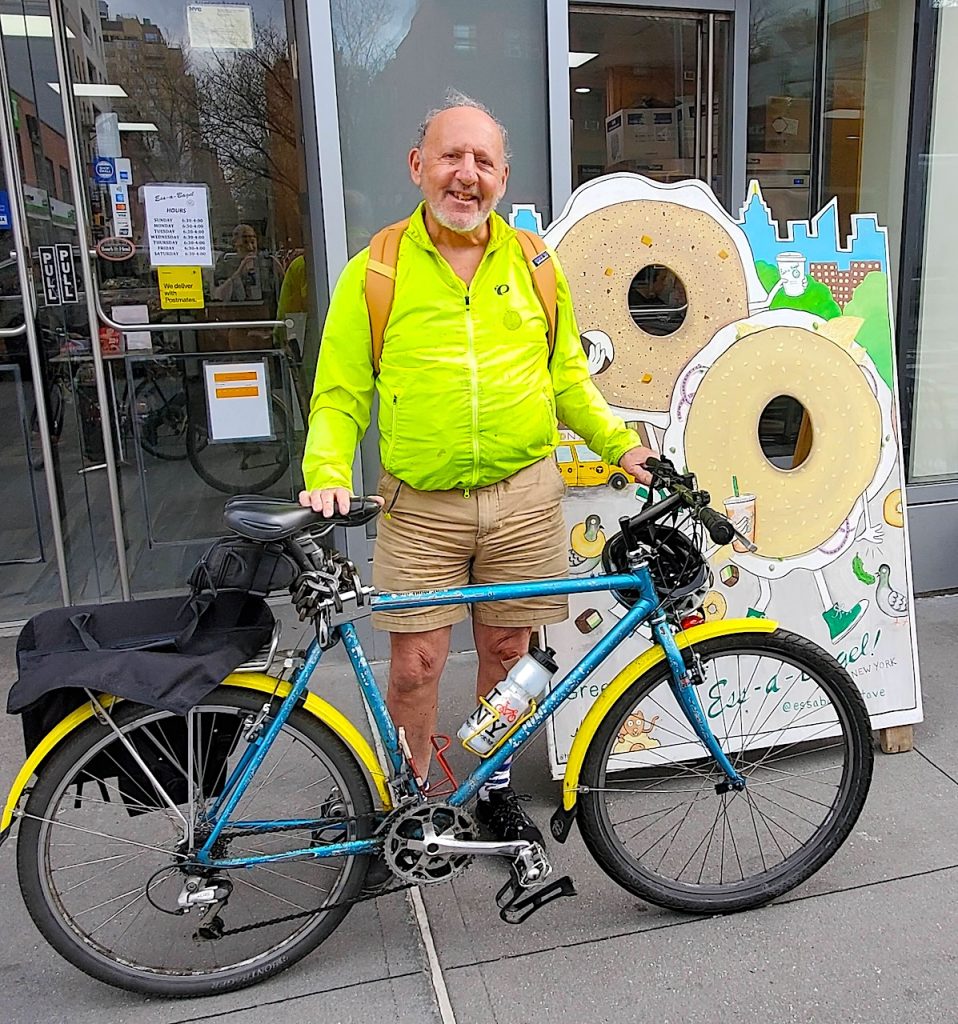
‘Slam dunk’ blocked at the rim?
Charles Komanoff, the Tribeca transit mastermind who “refounded” Transportation Alternatives in 1986, created a “Balanced Transportation Analyzer” spreadsheet that helped give the Cuomo the administration confidence to move ahead on congestion pricing. He did not immediately respond to requests for comment. But he was spotted at a protest Wednesday with the pro-transit Riders Alliance — holding a sign reading “If Now Now…When?” — outside Governor Hochul’s East Midtown office.
We’re outside of @GovKathyHochul’s office to DEMAND congestion pricing move forward as planned! #congestionpricingnow #hochulsMTA pic.twitter.com/7HWwqgGsNA
— 🚇 Riders Alliance (@RidersAlliance) June 5, 2024
“If you’re going to raise a billion dollars a year, it has to bite,” Komanoff told The Village Sun in March. “Congestion pricing is like a slam dunk for New York City. Trucks will come in faster and have fewer parking tickets. There’ll be less traffic, less honking, less aggression.”
At the time, Komanoff was deeply disappointed in the former governor, who, plotting a possible political comeback, had just done an about-face, declaring it was “time to hit the brakes on congestion pricing.” New York, Cuomo said, is still recovering from the pandemic and facing a host of issues, including “the migrant crisis, crime, homelessness, quality of life and taxes.”
“Seeing the jitters [about congestion pricing], he’s thinking it may help him,” Komanoff said. “But it won’t stop congestion pricing.”
But Hochul might have.

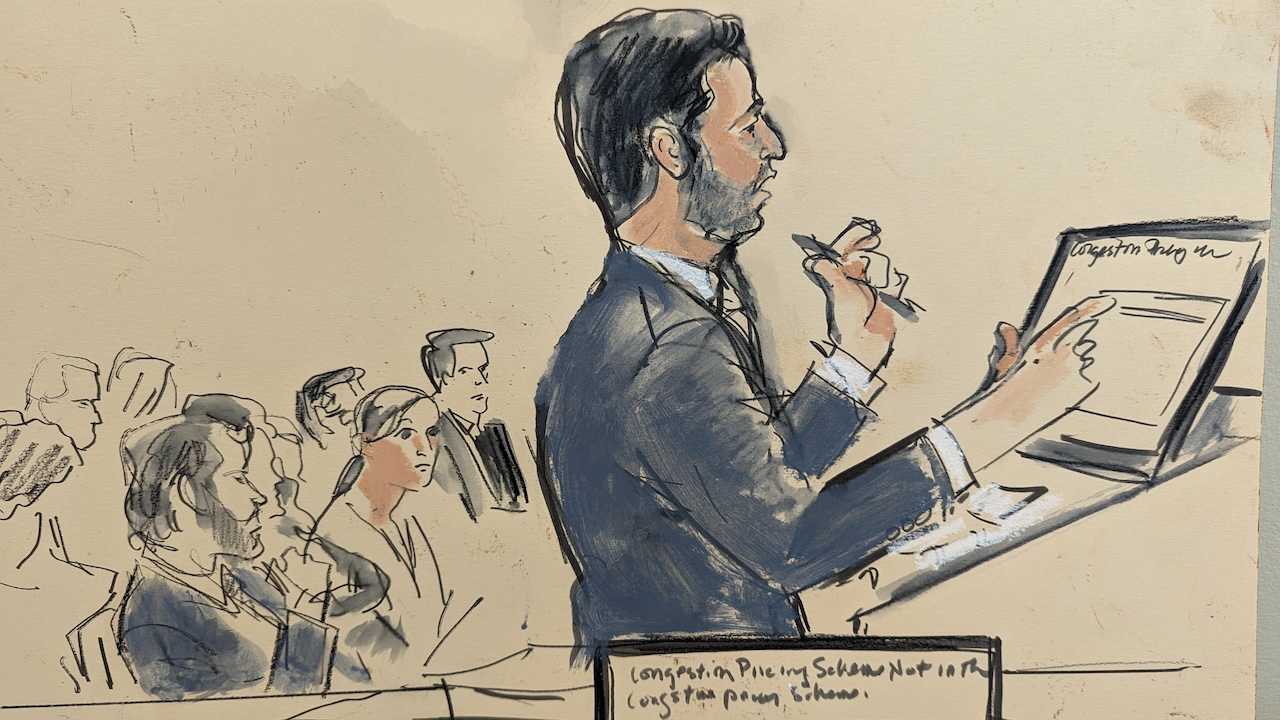
Being able to have a car is one of the reasons I loved the East Village. Relatively low-scale buildings, gardens and parking. Our neighborhood is being ruined by out-of-scale development, dining sheds and too many bike lanes. I’m not opposed to bikes — I bike myself. However it is not a viable alternative if you’re elderly, have a disability or are wearing nice clothes. Before we consider congestion pricing, we need to fix the transit fare evasion. Then maybe issue parking permits for streets reserved for residents, dramatically increase fees for dining sheds (although I oppose them altogether) have a dollar or two fee to cross the East River bridges and it should work out. It shouldn’t be all put on one group to fix. What if they got their wish and no one drive into Lower Manhattan? How would they fund the MTA then?
Now can the politicians and activists defending congestion pricing for its environmental effects, stand up and SAVE the northern end of the East River Park (just give us a 4 ft flood wall instead raising the section four feet along the FDR!) And SAVE Elizabeth Street Garden!
Summers are only getting hotter.
For years Komanoff was an oft-quoted opponent of nuclear energy. Two years ago when the light of reality struck about the critical need for it to combat global warming, Charlie did an about-face. Komanoff WRONG on nuclear energy.
In 1986″ Legs” Komanoff re-founded Trans Alt along with Fred Kent. Visionary of Placemaking. Vison Zero was the first leg in the sequence.
First push through the infrastructure of Vision Zero. Demonize the automobile. Undermine the NYPD by successfully prevailing on Mayor Bloomberg to with hold enforcement — the backbone of a responsible bike culture. Thereby creating chaos — a condition of danger on the streets and sidewalks — and clamoring for the need for congestion pricing to solve the congestion created by Vision Zero and ride-share vehicles
No enforcement and no environmental impact study — neither for Vision Zero or congestion pricing. This enterprise was driven by hubris. The visionaries knew only what they wanted to know — and they knew best. Trans Alt — their dupes and enablers — took the city for a ride. Arm-twisting, grinning and gloating until push came to shove.
And yet the city is still left with a lawless bike and micro-transport culture. The NYPD been undermined. Lithium-ion batteries causing 25 deaths and several hundred furious fires. Komanoff wrong on nuclear energy. Wrong on Vision Zero.
Such is the legacy of Sophist in Chief Charles Komanoff.
The commenters here who seem to think that all residents of the zone below 60th St. are for congestion pricing are wrong. Many of us are against it because we have the same concerns articulated in the article about businesses dying off if people are deterred from coming here, and about delivery companies, contractors and even grocery stores using the toll as an excuse to raise the already-high prices here. Residents of the CBD would pay for this every day, much more than car owners. And this is to say nothing of charging residents who do own a car, and keep it in a garage, just for coming home.
I only take the subway occasionally, but invariably I see well-dressed people ducking under or jumping over the turnstile in the subway. There may be good reasons to institute congestion pricing, but if it’s a question of raising money for transportation, how about making users pay their fares? Start fining people $500 for evading a fare and people will calculate the risks and benefits of jumping the turnstile with a little more clarity.
The law targets all outer-borough New Yorkers who drive. The billionaires and real estate magnates who live in Manhattan should 100% subsidize free public transportation because the value of their office buildings totally depends on it. If they eliminated the 100,000 Ubers and taxis in Manhattan each day there would be very little congestion.
I live in the congestion zone, next to the FDR Drive. I also have asthma. If the plan went through, there were be even more cars on the FDR Drive than there are currently, since this would be a toll-free highway. The asthma rates, already high in adjacent neighborhoods, would skyrocket. When I take the M15 bus, I find some of the worst congestion is up in the 60s and 70s blocks. I also think the plan was poorly thought-out. Why was 60th Street the boundary? Why was there going to be a congestion toll even in the middle of the night when there isn’t any congestion?
“according to a recent Siena College survey, 63 percent of New Yorkers statewide and 64 percent of Big Apple residents oppose the Manhattan congestion pricing plan, with opposition in the suburbs even higher at 72 percent”
This is a bogus poll.
Why weren’t the residents of Manhattan, the poor folk actually forced to endure the cars of suburbanites and outer-borough residents too elite to take the subway, why were’t they surveyed?
Because it would show strong support for congestion pricing!!
What are we? Chopped liver?
These poor New Yorkers WHO OWN CARS were going to have to park north of 60th Street and take a subway three or four stops? The horror!
Has there been a poll of, I don’t know, Manhattan residents south of 60th Street who are taking the brunt of the pollution? I don’t really care what Upstate and others think about their rights to drive into Downtown NYC versus the myriad other ways they can come visit this area.
This is a bad day for people living in Downtown Manhattan. It’s clear that you are not in charge of your own neighborhood. We have given so many subsidies to businesses (restaurants) with these absurd dining sheds. If you can’t make it work, then you don’t have a good concept. It’s that easy.
Non-driver, subway and bus rider here — and definitely against Congestion Pricing.
Wondering — does Mr. Komanoff even take the bus and subway?
From reading his various comments, it is my impression that he exclusively bikes
He’s a psychotic bike zealot.
In an article or two, Charles Komanoff mentioned that his elderly mother or mother-in-law (?) lives in Manhattan.
I don’t mean to be snarky – but for true transparency and honest discussion, I think it would be fair for him to specify how she gets around….?
Like Dracula, this thing is not dead yet. To drive a stake in the heart of all these half-baked plans we must end the influence $$$ of the malevolent Transportation Alternatives and their craven partners. But thanks, Governor.